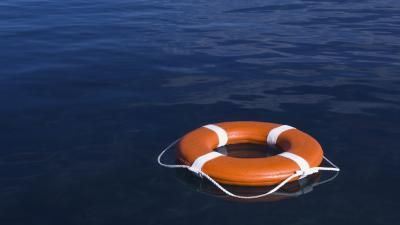
IMRF secures funding for next phase of #FutureSAR to enhance climate resilience in global SAR operations
The International Maritime Rescue Federation (IMRF) has announced phase two of its #FutureSAR project – ‘Harnessing Tides of Change’.
This page is approximately a 2 minute read
This page was published on

Answering this crucial question is the focus of a new research collaboration between the International Maritime Rescue Federation (IMRF), and Cranfield University, funded by Lloyd's Register Foundation. This nine-month project will investigate how safety practices are adopted and implemented across various maritime search and rescue (SAR) settings to identify the factors that influence their success or failure.
Not only will this project benefit the maritime SAR community, but it may also provide valuable insights for other high-risk sectors, including offshore energy, aviation, and emergency services.
The research team invites IMRF SAR members from anywhere in the world to participate in interviews conducted by Cranfield University, particularly those with experience in the use of life jackets, crew resource management (CRM), and call-out procedures. Interviews typically last between 30 and 45 minutes, although they may be shorter or longer depending on the extent of the conversation.
“By hearing directly from those who use these tools in the field, we hope to build a clearer picture of how safety measures function in real-world conditions as well as how they can be improved,” said Caroline Jupe, CEO of the IMRF. “Your input could help save lives.”
The project will result in a report and may lead to the publication of an academic paper, depending on the data collected and the outcome of the peer review process. More importantly, the aim is to develop a practical framework that supports the more effective application of safety interventions in diverse operational contexts. Findings from the research will also be presented at the IMRF Safety Seminar in November.
The project will be conducted in two phases. The first phase focuses on existing safety interventions and aims to understand the factors that affect their effectiveness when applied in new settings. The second phase will focus on the deployment of new technologies in maritime SAR, examining what must be considered to ensure these innovations are successfully integrated into operations. This second stage will involve a small number of online workshops with IMRF members.
Based in the UK, Cranfield University is a postgraduate institution known for its applied research in technology and management, with a strong focus on addressing complex, real-world challenges.
If you would like to contribute to this vital research and help improve the effectiveness of safety procedures in maritime SAR, please get in touch with the IMRF for further details via email at info@imrf.org.uk
